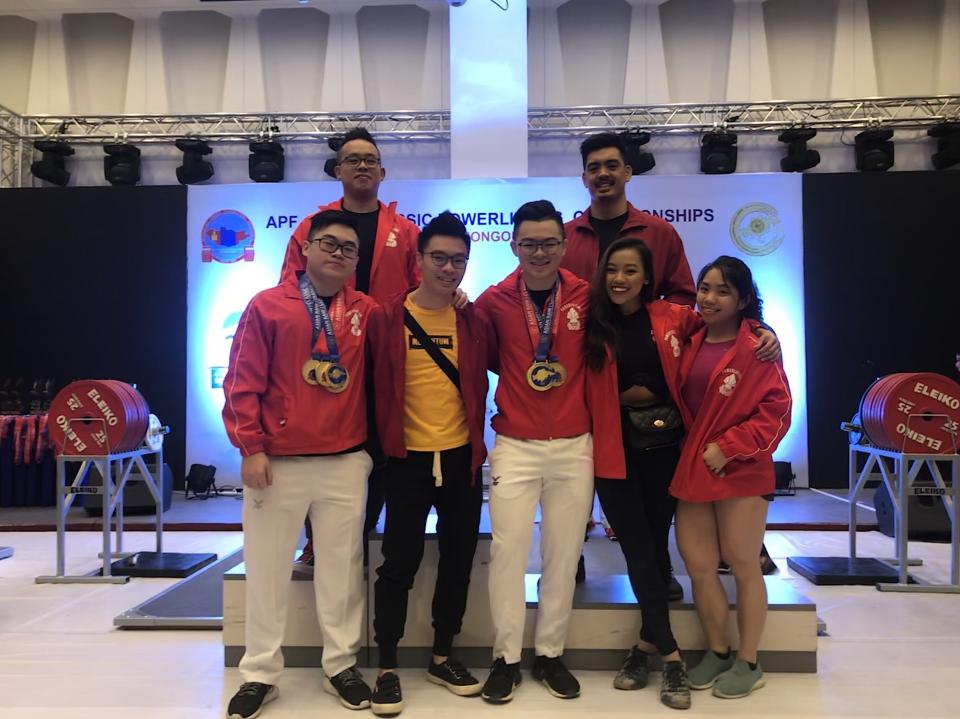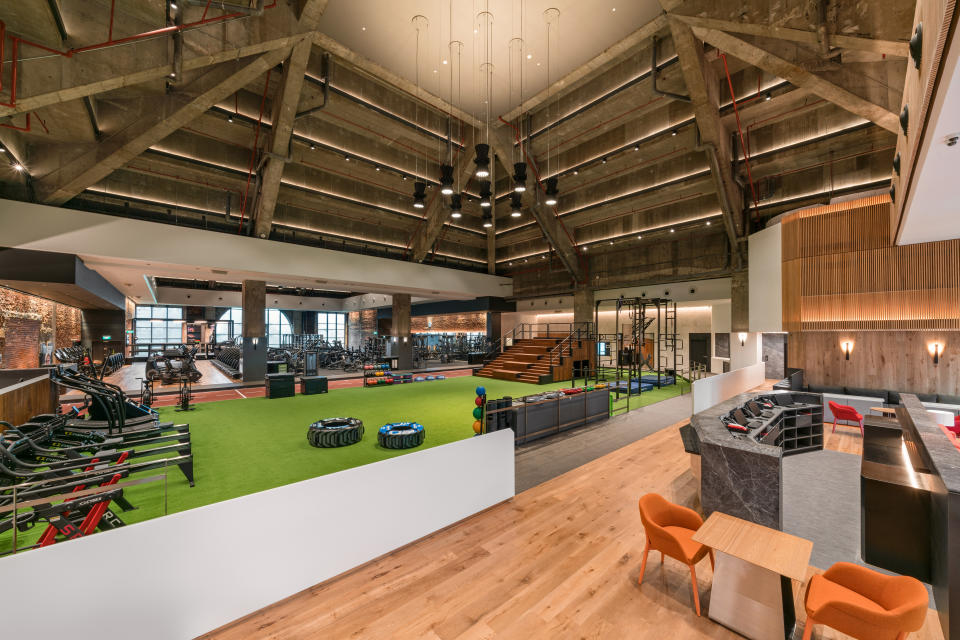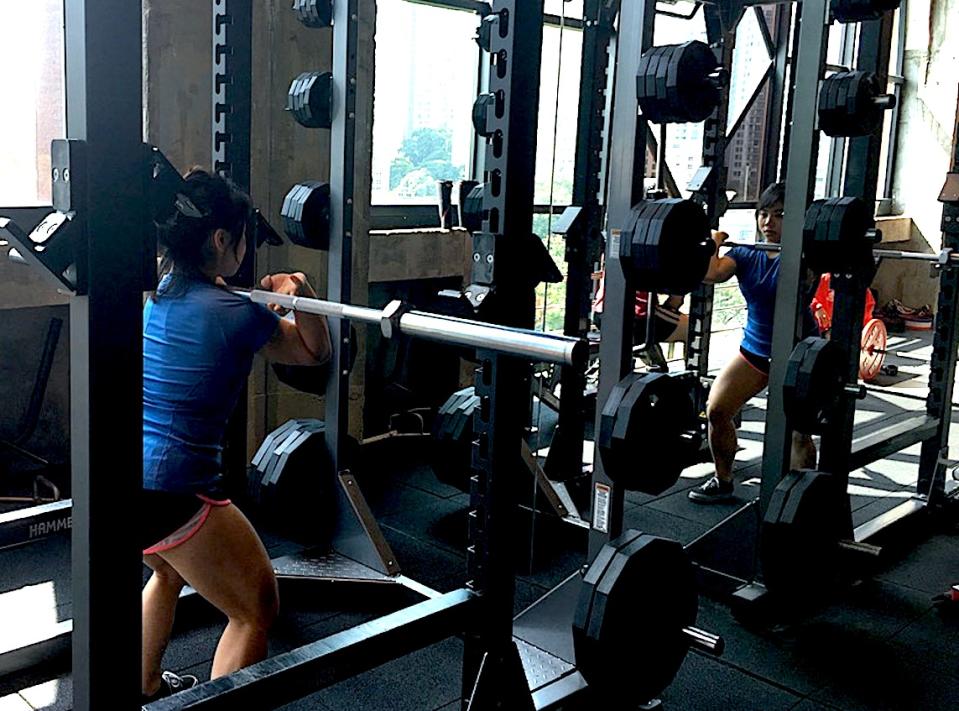Camaraderie drives Singapore national powerlifters towards success despite little support

The powerlifter walks up alone to the weights-loaded bar, and then tries to lift it unassisted. It is a test of one’s technique, focus and grit, yet at no point does the powerlifter pit his skills and strength directly with another competitor. It gives the impression that powerlifting is a lonely sport to participate in, unlike head-to-head sports like tennis or team sports like football.
Yet, to a person, Singapore’s national powerlifters insist that they would not have achieved much without one another, and that their camaraderie was what propelled them towards international success such as last December’s Asian Classic Powerlifting Championships in the Mongolian capital of Ulaanbaatar.
There, despite freezing temperatures of about -30°C, the 17-strong Singapore team swept to 41 golds, 10 silvers and five bronzes under strong competition among 253 athletes from 18 Asian nations. Every national powerlifter returned home with at least a gold medal.
Farhanna Farid has no doubts that her teammates gave her the impetus to create a little slice of sporting history for Singapore. She became the first female Singapore athlete to win an overall international open-category gold after clinching the Under-52kg division at the championships.
The 26-year-old pharmacist told Yahoo News Singapore, “We had a team huddle in our hotel the night before the competition, and we talked about where we were before we took up powerlifting and how far we have come. We reflected upon all of our journeys to this competition, and that calmed our nerves and gave us the motivation and focus for what was ahead. It was a special moment for all of us.
“Then, on the day of the women’s competition, the guys did all the nitty gritty work – checking the equipment, handling the administrative procedures and so on. All I had to was to feed myself and then focus on lifting, and not worry about other stuff. So I’m grateful to all of them for their assistance in the background.”
Success stories aplenty
She was not the only success story among the Singapore female powerlifters at the Asian Classic championships. Thor Qian Qi, 19, won four golds and set an Asian record for dead lift (145.5kg) in the women’s U-52kg junior category.
The male athletes were no slouches either. Norfatris Danial, 22, achieved the U-83kg junior category dead lift Asian record twice (281kg and then 293kg) en route to overall gold, while 19-year-old Matthew Yap won the U-74kg junior category, smashing the squat Asian record (248kg) along the way.

The results are all the more remarkable considering that powerlifting was introduced in Singapore only in 2013. Furthermore, with the sport’s local governing body Powerlifting Singapore yet to attain national sports association (NSA) status to receive funding from Sport Singapore, the national powerlifters have had to fork out their own money to train or go for top overseas competitions.
Matthew, the second-eldest of the three powerlifting Yap brothers alongside 24-year-old Marcus and 18-year-old Matthias, said that finances remain the biggest challenge for the national powerlifters, as it costs about $2,500 to $3,000 each to competitive in an overseas event.
He and his brothers spent over $10,000 to take part in the Asian Classic championships. In 2017, when he and Marcus were competing in the World Classic Powerlifting Championships in Minsk, Belarus, they missed their return flight after running into visa troubles. With the brothers not having enough money to rebook another flight, Powerlifting Singapore launched a crowdfunding campaign and eventually raised enough funds to get them home.
Necessary sacrifices for honours and recognition
Despite all their financial challenges, Marcus believes that it is a necessary sacrifice in order to gain international honours and recognition, and grow the sport in Singapore.
The former world-record holder in the U-59kg junior category is now concentrating more on coaching, and he said, “Honestly, this batch of athletes will not be the ones to get more support. If any financial assistance comes, it will probably benefit the next generation of national athletes.
“This is why I’m so proud of the team. They are not from a rich background, but all chose to sacrifice their finances and time to compete for Singapore. This is probably why we stayed united during the competition, and our sacrifices taught us to grow as individuals.”
There were other sacrifices, such as juggling between their sport and their careers (Matthias had to wake up at 4am to train before heading for his Shatec internship job last year). There were disappointments to overcome too – for instance, 22-year-old national serviceman Yeong Qing Quan failed to win a medal in four previous competitions before finally earning one at the Asian Classic championships.
Yet through it all, the national powerlifters have built a trust among one another that has given them the platform for further achievements.

“We learnt a lot about ourselves at the Asian Classic,” said Marcus. “Our preparation leading up to the competition was not ideal, as many of them did not have enough training in the lead-up and were quite worried about meeting their targets. But they knew that during competition, it was all about desire and grit, so they pushed and encouraged one another throughout the competition.
“And because I knew everyone so well, I was sure that whatever decision I made would be the right one. I took care of the little things like how early we arrive in Mongolia, who rooms with who, what time we sleep – these little things added up to make us stronger.”
Positive development for powerlifting in Singapore
Amid all their blood, sweat and tears, things are looking up for the sport in Singapore. For instance, after training separately in the past, many of the national athletes have started training together at Pure Fitness gym’s Ngee Ann City outlet, which opened in late 2017.

The 28,000 square-foot outlet has a dedicated “strongman” area, where powerlifters can train using competition-specific weights. Together with other state-of-the-art gym equipment such as fitness bikes with virtual gameplay technology, the outlet provides the national powerlifters with a wide, holistic spectrum of training needs.
It is no wonder then that this small but dedicated bunch of pioneering powerlifters are plowing ahead despite their considerable challenges.
For instance, social worker Venus Tang, 25, finds great joy in lifting all by herself in the gym, a refuge from her full-time job which involves plenty of human interaction. “Other competitors are so serious that they were puking before their lift. I’m just deeply happy and enjoying every lift,” she told Yahoo News Singapore.

For Farhanna, her winning performance has piqued the interest of some of her work colleagues to take up the sport. “It’s empowering for women to learn to embrace their strength, and understand that it’s not wrong to be strong,” she said.
And for Matthew, he believes that, as long as he and his teammates keep improving, everything else will fall into place. “When our achievements start to build, people will want to compete in the sport. Many of them are actually doing similar actions in the gym without actually knowing that these constitute powerlifting. It’s all about building awareness and spreading the word.”
In the Singapore sporting arena that is sometimes rife with internal divisions, it is encouraging to come across a group of dedicated athletes united in their purpose to lift one another and power their ambitions towards sporting success.
Related story:
Singaporean Yap brothers win 6 golds at Asian Classic Powerlifting Championships



